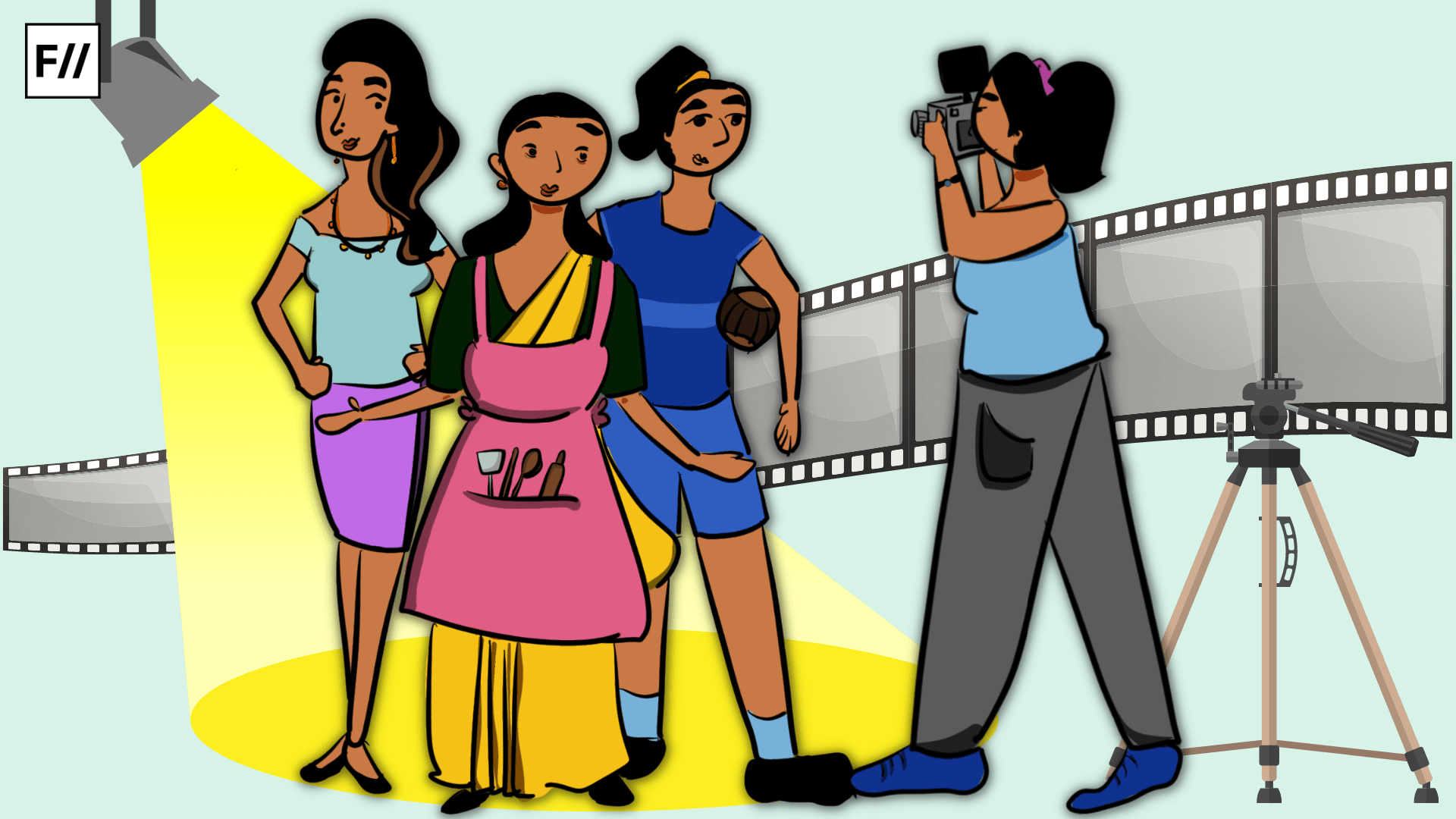A while ago, Tollywood actor Pawan Kalyan’s much-hyped film OG was released in theatres. Telugu fans across the country flocked to watch the film on the very first day, and in fact, to watch the special premiere show screened the day before. Even in cities outside the Telugu states, like Chennai, fans erected huge cut-outs of the star, decorated those with garlands and burst crackers.
This is not a new or isolated practice. It’s a quite common fan tradition in the Telugu and Tamil film industries, which has been done for many decades. In fact, this is a milder version of the fan culture. These die-hard fans become a problem when their admiration becomes obsessive and blind. They start lashing out at other people who don’t support their hero in troubling ways. Among the Telugu fans, they jokingly refer to themselves as ‘TFI baanisa‘, literally meaning TFI’s slave.
Fandom and popular culture
Fandom is an integral part of our culture, especially pop culture. Fandom shapes culture too. We’re all part of one fandom or another, or even multiple ones. There are books, films, shows, actors, and video games that we admire a lot. When does this become problematic? Dr. Laurel Williams, Associate Professor at the Menninger Department of Psychiatry and Behavioral Sciences at Baylor College of Medicine, says, ‘When someone starts ‘speaking their truth’ about a celebrity or topic in a way that dehumanizes others, either online or in person, that’s when you know there’s a problem.‘
This toxic fan culture can manifest in many ways, both online and offline. Firstly, it’s a great risk to their idol, if they’re obsessed to the point of stalking and collecting their personal information. Another way is through harassment of those who are not fans of their idol, threatening them with abusive language. This may also lead to fan wars which can cause physical fights between the fans.
India has its fair share of toxic fan groups, from cricket (especially in IPL) to cinema. Tollywood is emblematic of this phenomenon. It has many ‘isms’ — Pawanism, Rebelism, Maheshism — named after its most prominent stars. They also have ‘star names’ like Mega Star, Stylish Star, and Power Star, to name a few. What makes this more than just cinematic passion is how it spills into real life through fan riots, political mobilisation, and deep social divides. The industry profits through every controversy, but the costs here are alarmingly high. In 2023, a Prabhas fan was electrocuted while setting up a banner for his film Salaar. In 2020, three Pawan Kalyan fans died during his birthday celebrations. In 2016, Vinod Kumar, was stabbed by two fans of Junior NTR a few days before the release of his film Janatha Garage.
In 2020, three Pawan Kalyan fans died during his birthday celebrations. In 2016, Vinod Kumar, was stabbed by two fans of Junior NTR a few days before the release of his film Janatha Garage.
It isn’t just Tollywood fans themselves, sometimes actors abuse the fans but it is brushed off lightly. Actor Balakrishna is known for slapping and shoving aside his fans. Vamshi Vamireddy, a film studies researcher at the University of Hyderabad, said to The News Minute, ‘In the aftermath of such incidents (where Balakrishna hits or scolds fans), the strangest narrative is floated, that fans are grateful to be touched by the star.‘ In fact, Balakrishna himself said that such incidents cannot be interpreted by outsiders, because he and his fans have an understanding. ‘The fan is happy that my hand touched him. These critics don’t know all that,’ he said.
Toxic “fanism” in Tollywood
If blind, sycophantic devotion is one side of the coin, the other side is threatening anyone and everyone who is not a fan of their idol. Tollywood actresses, especially, face the brunt of this. They are trolled online, bodyshamed, and derogatory, misogynistic language is used against them. Actresses are also mocked for their accents, linguistic ability, dressing style, and appearance, particularly during pre-release events and other film promotion events.

Actress Anasuya was bullied by fans of Pawan Kalyan for saying that she was glad she wasn’t a part of the film Attarintiki Daredi. Vaishnavi Chaitanya, the star of the Telugu film Baby was trolled for her character in the film, while her male co-actors were exempted from such abuse by the fans. Samantha Ruth Prabhu’s treatment after her divorce also shows how fan clubs become digital mobs.
Moreover, when actors make casual sexist remarks on stage and face no consequence, fans echo those lines as gospel. Comedian Ali objectified actress Anushka Shetty by comparing her to a hot jalebi. Balakrishna said that he acted naughty sometimes with the actresses by pinching them. These are just the tip of the iceberg. The Tollywood industry normalises behaviour that would cause outrage elsewhere.
Moreover, when actors make casual sexist remarks on stage and face no consequence, fans echo those lines as gospel.
One of the main pillars holding up this indomitable industry is the caste lineage. This is a huge factor along which fans mobilise themselves, and also affects how different fan groups interact with each other. The success of their favourite hero becomes a matter of caste pride. This also helps these actors propel themselves into politics, because this unflinching fanbase becomes a devoted vote bank. Rohitha Naraharisetty at The Swaddle writes, ‘the unquestioned hegemony of the supposedly divided Kamma-Kapu cine families speaks to their unified interest in keeping the industry and the springboard it provides into politics firmly shut to everyone else – even as Tollywood relies on Dalit-Bahujan labour to maintain its nuts and bolts.‘

Toxic fandom, or “fanism”, as it’s called in Tollywood, has far-reaching consequences. It creates a cult-like devotion and their idol becomes akin to a demigod. Right now, with the growth of Telugu film industry into a pan-Indian industry with blockbuster films like Baahubali and RRR, the fandom phenomenon, and with it the mainstream misogyny and casteism, is only going to spread.
About the author(s)
Samhita is a final year student of English Studies at IIT Madras. She enjoys reading, and especially loves engaging with women's fiction, as part of her academic research as well. She's a huge fan of sudokus, crosswords, and all sorts of puzzles.






